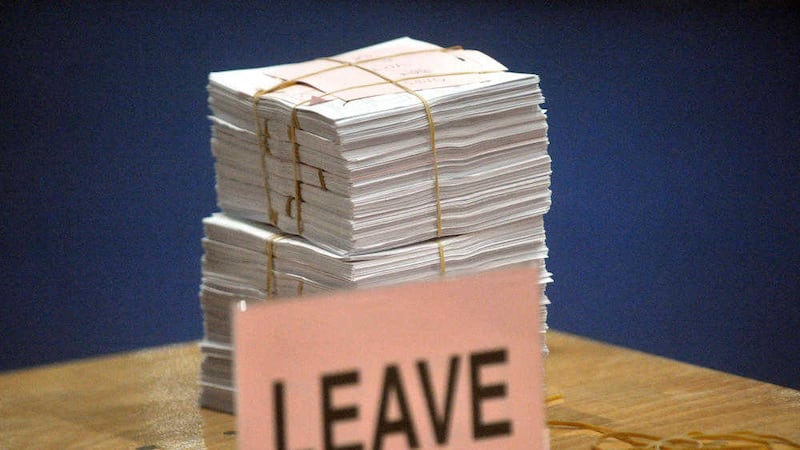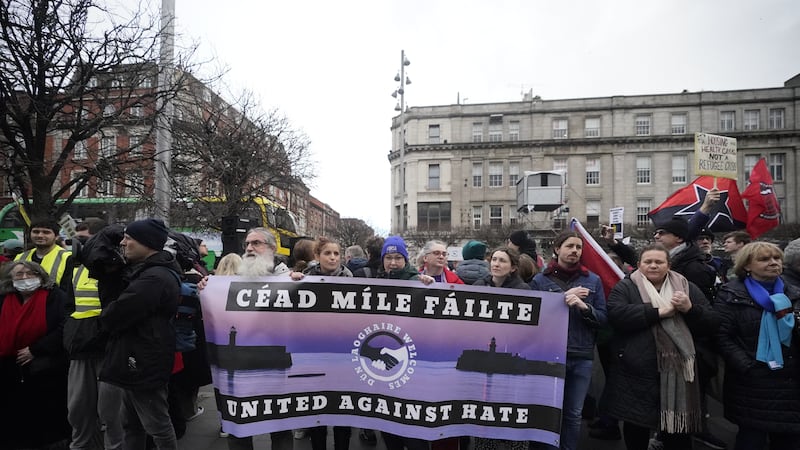IN my lifetime in politics I do not recall a time quite like the one we are passing through at the moment.
The people of Ireland, nationalists and unionists, at all levels of society, are in the throes of a national debate – an unexpected, indeed unique national debate - about the future direction of politics on this island.
And it is not only political activists, politicians and media pundits in Dublin and Belfast involved in the debate.
It is taking place in people’s homes, in their workplaces, their businesses, where they relax as they go about their day to day lives.
Customers in my local barber's were speaking about it; a visitor from America on the train from Dublin to Belfast eagerly engaged a middle-aged couple from Bangor about it; in a post office queue a young woman asked an elderly woman would it affect her child benefit; a woman asked me would she lose her Irish passport as she collected a passport form.
Post offices in unionist areas are reporting a run on Irish passport forms; a foreign national wants help to become an Irish citizen; a business woman wants help to move her business from England to the south of Ireland; some unionists are considering the worth of a united Ireland; what did it all mean for his pension, a private taxi man asked me as he dropped me home.
And that is a small sample of the public discourse taking place.
Ironically enough the midwife of this national debate is the decision by the British government to leave the EU and the outworking of that decision in terms of its impact politically and economically on Ireland and on Britain, in particular on Scotland.
The ‘leave campaign’ produced many surprises (and there will be more) not least of which was the decision itself to leave the EU, which, I believe from later admissions, it would appear many of the leave campaigners did not anticipate.
Surprise too in the north of Ireland where 56 per cent of the people voted to remain despite the DUP’s campaign to leave. And in Scotland where the people resoundingly voted to remain.
So what does it all mean? That was the burning question for over two hundred republicans who gathered last Saturday in a community centre in Dublin’s Ballyfermot to review the route travelled by Sinn Féin over the last 10 years and to set out its next ten-year plan.
It was too early to have precise answers to this question but not too early to recognise the situation is replete with opportunities to argue for an agreed united Ireland, for an end to partition and for the radical transformation of society, north and south, to improve people’s lives.
Delegates oozed confidence - and why would they not? - as government ministers from the north mingled with government ‘ministers in waiting’ in the Dáil.
It is a case of not if, but when. Out of the austerity mess of Fine Gael, Labour and FiannaFáil, opportunities will arise.
At that stage Sinn Féin will cross the floor of the Dáil from the opposition benches to the government benches as they did, metaphorically speaking, in the north.
The leave result is transforming Irish politics and the Ballyfermot gathering of the ‘agents of national change’ are at the cutting edge of that early transformation.
A transformation which requires the Irish government and the north’s executive to lead all parties in a national effort to keep the north in the EU with the rest of Ireland which they expressly voted for.
A transformation which requires the British government to agree a referendum to allow the people of the north to decide whether to remain a part of the UK or be part of an independent Ireland – however it is configured.
A transformed society now, north and south, which provides people with the security they need to live and work in Ireland free of the fear of emigration; where there is increased investment in public services; where a fair tax system produces the resources needed for a prosperous society; where trade unions and business organisations thrive and serve the popular interest.
These are exciting times. They do not come round that often. The momentum for change is in place. It is time to deliver.







